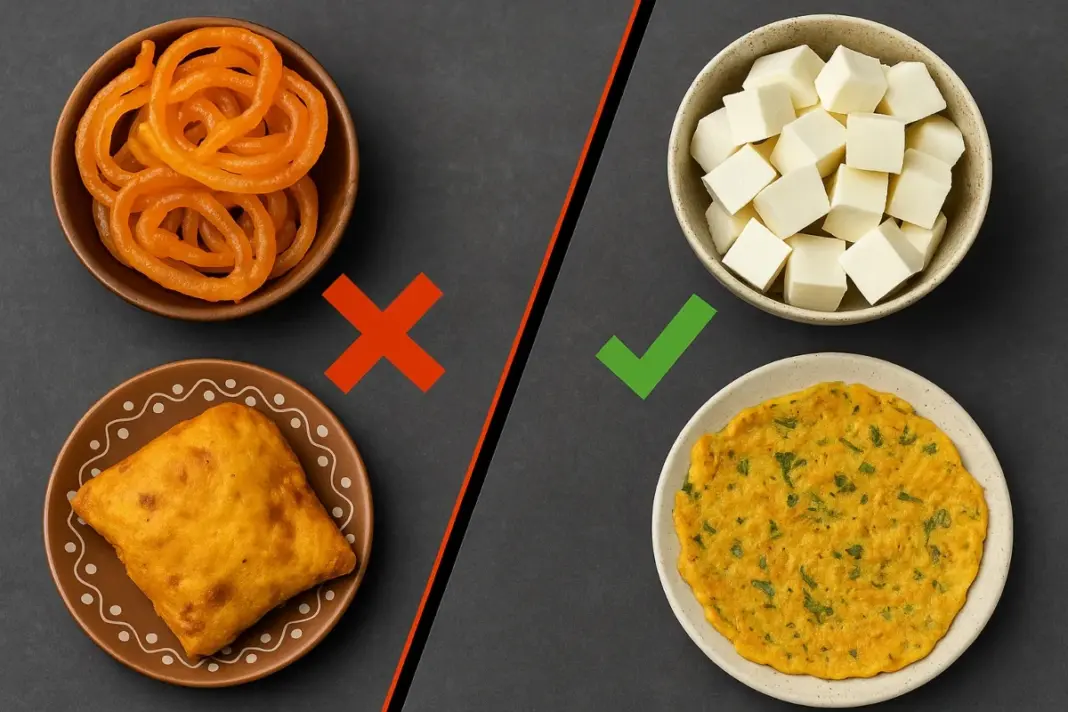Indian cuisine ranges from the good to the bad. While the spices, nuts, and legumes offer goodness, our tendency to eat more sweets and snacks silently hurts our health. Therefore, ahead of this festive season, you need to understand that what tastes great kills slowly.
The mouth-watering snacks like jalebi and bread pakora should be reserved for special occasions, while shifting towards a healthier diet. Take the expert’s opinion on this.
The Silent Dangers of Fried Foods and Healthy Swaps Your Body Will Thank You For
Instead of the above options, one should be encouraged to have more moong dal and paneer. Paneer, a rich source of protein and calcium, is excellent for bone and muscle development. At the same time, moon dal chilla or a pain moong dal with roti can provide protein and fibre to your gut. His final advice to his audience was to focus on the best foods, consume the okay foods moderately, and avoid the worst foods.
Doctor Manan Vora explains the silent dangers of deep-fried food to your parents’ health. He tagged sugary and deep-fried foods as the “worst” for health. Deserts like jalebi and fafda are loaded with sugar. Samosa and kachori contain salt and unhealthy trans fats. These refined carbs and trans fats then increase the risk of diabetes, obesity, and internal inflammation. He advised strictly avoiding and limiting these foods and having them only during festive occasions.
Everyday Meals That Need Moderation
Besides the food that tastes great and kills slowly, some staple Indian dishes aren’t so healthy. White rice parathas and poha are most people’s main food during lunch, dinner, and breakfast, respectively. But Dr. Vora termed them as “okay foods” only to be consumed moderately. This is because they lack protein and fibre, and can increase blood glucose levels.
Following this easy chart, you can make your own categories of best, okay, and worst food, too. This will help you fill your plate with healthier foods while setting aside the bad ones.
Disclaimer: This content, including advice, provides general information only. It is not a substitute for qualified medical opinion in any way. The methods and claims mentioned in this article should be considered as suggestions only; DNP India neither confirms nor denies them. Always consult a doctor before following any such suggestions/treatments/medications/diets.



